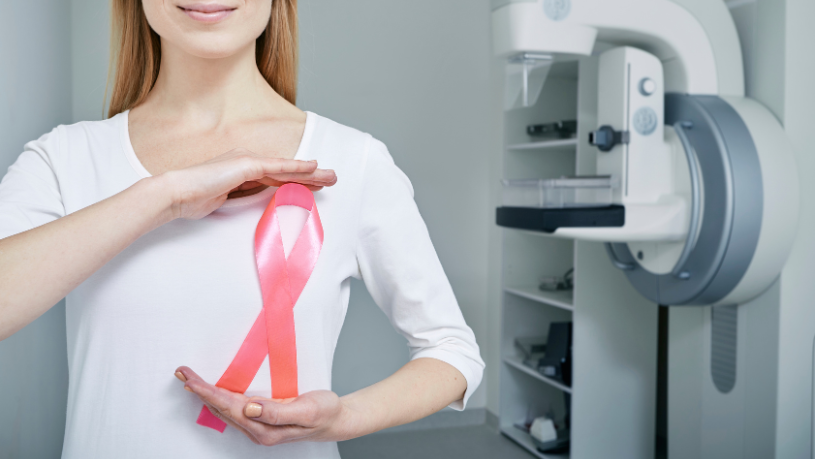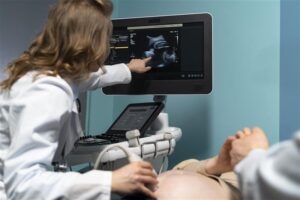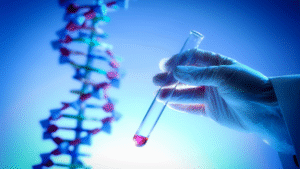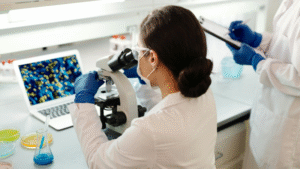When it comes to breast cancer, a one-size-fits-all approach to screening and prevention is inadequate. Each woman has a unique risk profile based on a complex interplay of genetic, environmental, and lifestyle factors. At Pink Medical NY, we believe that understanding your personal risk is the foundation of effective breast health clinic management. That’s why we offer comprehensive breast cancer risk assessment as an essential first step in your breast health journey.
What Is a Comprehensive Breast Cancer Risk Assessment?
A comprehensive breast cancer risk assessment is a systematic evaluation that goes far beyond a simple mammogram or breast exam. It’s a multifaceted analysis that considers numerous risk factors to provide a personalized estimate of your likelihood of developing breast cancer.
Our risk assessment service evaluates your unique risk factors without requiring imaging. Our specialists analyze your medical history, family cancer history, genetic factors, and lifestyle elements to create a complete risk profile. Using advanced risk calculation models, we determine your personal risk score and develop tailored screening recommendations.
The Components of a Thorough Risk Assessment
-
Personal Medical History
Several aspects of your medical history can influence breast cancer risk:
- Previous breast conditions: A history of certain benign breast conditions, such as atypical hyperplasia, increases future cancer risk.
- Breast density: Women with dense breast tissue have both a higher risk of developing breast cancer and face challenges with traditional screening methods.
- Hormone exposure: Factors that affect lifetime estrogen exposure, such as age at first period, age at menopause, and hormone replacement therapy use.
- Pregnancy history: Age at first full-term pregnancy, number of pregnancies, and breastfeeding history all influence risk.
- Previous radiation exposure: Radiation therapy to the chest area, particularly at a young age, increases breast cancer risk.
-
Family History Analysis
Your family history provides crucial insights into potential hereditary risk factors:
- First-degree relatives: Having a mother, sister, or daughter with breast cancer approximately doubles your risk.
- Second-degree relatives: Breast cancer in grandmothers, aunts, or half-siblings also contributes to increased risk.
- Male breast cancer: A history of male breast cancer in the family can be particularly significant, as it often indicates an inherited genetic component.
- Age of diagnosis: Family members diagnosed at younger ages (under 50) suggest stronger genetic factors.
- Multiple affected relatives: Having several family members with breast or related cancers (ovarian, pancreatic, prostate) suggests potential hereditary syndromes.
- Bilateral breast cancer: Family members with cancer in both breasts indicate increased genetic risk.
-
Genetic Risk Evaluation
While a full genetic test may not be performed during the initial assessment, evaluating the likelihood of genetic risk is an important component:
- BRCA1/BRCA2 probability: Assessing the likelihood of carrying these high-risk gene mutations.
- Other gene mutations: Evaluating risk for mutations in genes like PALB2, ATM, CHEK2, and others.
- Ancestry considerations: Certain ethnic backgrounds, particularly Ashkenazi Jewish heritage, have higher frequencies of specific genetic mutations.
-
Lifestyle and Environmental Factors
Modifiable risk factors play a significant role in breast cancer development:
- Body weight: Obesity, particularly after menopause, increases breast cancer risk.
- Physical activity level: Regular exercise is associated with reduced risk.
- Alcohol consumption: Even moderate alcohol intake increases breast cancer risk.
- Smoking history: Tobacco use is linked to increased risk.
- Diet patterns: Certain dietary habits may influence risk.
- Environmental exposures: Potential exposure to carcinogens or endocrine-disrupting chemicals.
Advanced Risk Calculation Models
At Pink Medical NY, we use validated risk assessment models that integrate multiple risk factors to calculate your personal risk score. These may include:
- Gail Model: Calculates 5-year and lifetime risk based on age, reproductive history, previous breast biopsies, and family history.
- Tyrer-Cuzick Model: A more comprehensive model that incorporates additional family history details and personal risk factors.
- BRCAPRO: Focuses on the probability of carrying BRCA1/BRCA2 mutations.
- Breast Cancer Surveillance Consortium (BCSC) Risk Calculator: Incorporates breast density into risk assessment.
These models provide numerical estimates of your risk compared to average-risk women, helping to guide screening and prevention recommendations.
Why Risk Assessment Matters: Personalized Breast Health Planning
Understanding your personal risk level allows for truly individualized breast health services management:
-
Tailored Screening Protocols
Different risk profiles warrant different screening approaches:
- Average risk: Standard mammography screening guidelines may be appropriate.
- Moderate risk: May benefit from earlier initiation of screening, more frequent screening, or supplemental imaging methods.
- High risk: May require intensive surveillance including mammography, MRI, and specialized screening like the Koning VeraScan CT.
-
Risk-Reducing Strategies
For women at elevated risk, proactive risk-reduction options can be considered:
- Chemoprevention: Medications like tamoxifen or raloxifene can reduce breast cancer risk for eligible women.
- Lifestyle modifications: Targeted changes to modifiable risk factors.
- Enhanced surveillance: More frequent or intensive monitoring.
- Preventive surgery: For women at very high risk, prophylactic mastectomy may be an option to discuss with healthcare providers.
-
Genetic Testing Decisions
Risk assessment helps determine whether genetic testing for women would be beneficial:
- Low probability of genetic mutation: Routine genetic testing may not be warranted.
- Moderate probability: May consider multi-gene panel testing.
- High probability: Comprehensive genetic counseling and testing is usually recommended.
The Risk Assessment Experience at Pink Medical NY
Our comprehensive risk assessment process is designed to be thorough yet convenient:
-
Detailed Consultation
You’ll meet with our specialized team to review your medical history, family history, and lifestyle factors in detail. We take the time to understand your unique situation and answer any questions you may have.
-
Risk Calculation
Using advanced risk assessment models, we’ll calculate your personal risk score, comparing your risk to that of the average woman in your age group.
-
Results Discussion
We’ll explain your risk assessment results in clear, understandable terms, helping you interpret what your risk level means for your breast health management.
-
Personalized Recommendations
Based on your risk profile, we’ll develop customized recommendations that may include:
- Optimal screening schedule and methods: Including whether advanced imaging like the Koning VeraScan would be beneficial.
- Genetic testing guidance: Whether genetic testing is recommended, and if so, which tests are most appropriate.
- Risk-reduction strategies: Personalized suggestions for lifestyle changes or medical interventions that could reduce your risk.
- Follow-up timeline: When to reassess your risk and adjust your plan as needed.
Beyond the Assessment: Ongoing Risk Management
Risk assessment is not a one-time event but rather the beginning of an ongoing process. Factors that can change over time include:
- Age
- Breast density
- Body weight
- Menopausal status
- Family history (as new diagnoses may occur in relatives)
- Personal health developments
We recommend periodic reassessment to ensure your breast health plan remains optimally tailored to your current risk profile.
Empowerment Through Knowledge
A comprehensive risk assessment provides more than just numbers—it offers peace of mind and empowerment. Women with average risk can feel reassured, while those with elevated risk can take proactive steps to manage their health.
At Pink Medical NY, we believe that knowledge is power when it comes to breast health. Our risk assessment service helps you make informed decisions about screening, prevention, and overall health management.
Schedule Your Risk Assessment Today
Don’t wait to understand your personal breast cancer risk. Contact Pink Medical NY to schedule your comprehensive risk assessment. This essential first step will help identify appropriate monitoring intervals and preventative measures based on your specific needs.
Remember, knowing your risk doesn’t mean predicting your future—it means taking control of it.
This information is provided for educational purposes only and is not intended to replace the advice of your doctor or healthcare provider. Please consult with your healthcare provider regarding specific medical conditions and treatments.





